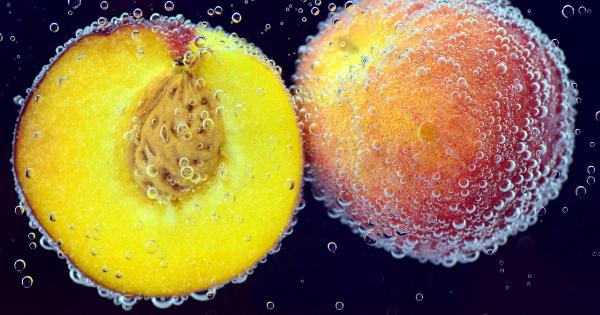Bile stones, also known as gallstones, are solid deposits that form in the gallbladder. They are made up of cholesterol, bilirubin and other substances found in bile, a fluid produced by the liver to aid in the digestion of fats.
While many people with gallstones may not experience any symptoms, others may experience pain, nausea, vomiting, and other discomforts that can interfere with daily life. In severe cases, surgery may be necessary to remove the gallbladder. However, there are ways to prevent the formation of bile stones through diet and lifestyle changes.
What Causes Bile Stones?
Bile stones can be caused by a variety of factors, including genetics, obesity, a diet high in cholesterol and fat, and rapid weight loss.
Women, particularly those who have given birth multiple times, are also at a higher risk for developing gallstones. Other risk factors include age, diabetes, and certain medications.
The Role of Diet in Preventing Bile Stones
One of the most effective ways to prevent the formation of bile stones is through diet.
A balanced diet that is low in saturated and trans fats, and high in fiber, vitamins, and minerals can not only help prevent gallstones, but can also improve overall health and wellness.
Recommendations for a Bile Stone Prevention Diet
The following are some diet recommendations to help prevent the formation of bile stones:.
1. Include more fruits and vegetables in your diet
Fruits and vegetables are rich in vitamins, minerals, and fiber, which can help prevent the formation of gallstones. Aim for at least five servings of fruits and vegetables per day.
Add a variety of colors to your plate, such as leafy greens, carrots, bell peppers, berries, and citrus fruits.
2. Choose whole grains over refined grains
Whole grains are a good source of fiber, which can help regulate digestion and prevent constipation, a risk factor for bile stones. Replace refined grains such as white bread, pasta, and rice with whole grain bread, brown rice, quinoa, and oatmeal.
3. Limit saturated and trans fats
Limit your intake of saturated and trans fats, as they can increase cholesterol levels and contribute to the formation of gallstones. Avoid fried foods, processed snacks, and high-fat meats such as bacon and sausage.
Instead, opt for lean proteins such as chicken, fish, and beans.
4. Incorporate healthy fats into your diet
Incorporate healthy fats such as omega-3 fatty acids into your diet, which can help reduce inflammation and improve overall health. Include fatty fish such as salmon, nuts and seeds, and olive oil in your meals.
5. Drink plenty of water
Drinking enough water is important for maintaining proper hydration and preventing the formation of gallstones. Aim for at least eight cups of water per day, and avoid sugary drinks and alcohol.
6. Choose low-fat dairy products
Choose low-fat dairy products, such as skim milk and yogurt, over high-fat options, as they can help reduce cholesterol levels and prevent the formation of gallstones.
Lifestyle Changes to Prevent Bile Stones
In addition to following a healthy diet, there are some lifestyle changes you can make to help prevent bile stones:.
1. Maintain a healthy weight
Obesity is a contributing factor to the formation of gallstones. Maintaining a healthy weight through diet and exercise can help prevent the development of bile stones.
2. Exercise regularly
Regular exercise can help improve digestion, regulate weight, and reduce the risk of gallstone formation. Aim for at least 30 minutes of moderate-intensity exercise per day.
3. Avoid rapid weight loss
Rapid weight loss can increase the risk of bile stones. Instead, aim for gradual, sustained weight loss through a healthy diet and regular exercise.
4. Quit smoking
Smoking can increase the risk of gallstone formation. Quitting smoking can help improve overall health and reduce the risk of a variety of health problems, including gallstone formation.
When to Seek Medical Attention
While a healthy diet and lifestyle changes can help prevent the formation of bile stones, it is important to seek medical attention if you experience the following symptoms:.
- Severe abdominal pain that lasts for several hours
- Nausea and vomiting
- Jaundice (yellowing of the skin and whites of the eyes)
- Fever and chills
If you experience any of the above symptoms, seek medical attention immediately, as they may be a sign of a serious health problem.
Conclusion
Preventing the formation of bile stones is possible through a combination of a healthy diet and lifestyle changes.
By incorporating more fruits and vegetables, whole grains, and healthy fats into your diet, and maintaining a healthy weight through regular exercise, you can reduce your risk of developing gallstones and improve your overall health and wellness.




























